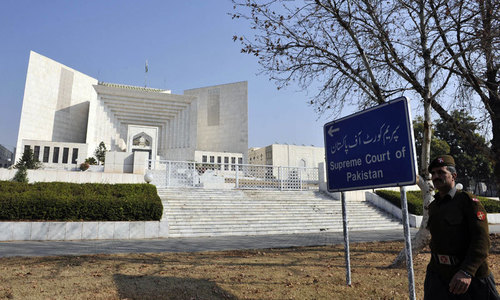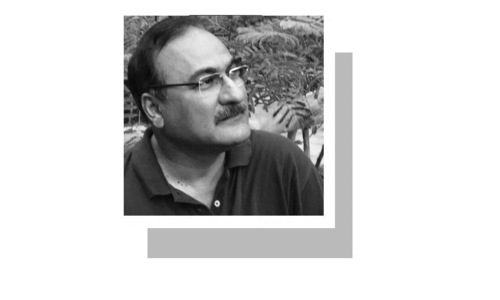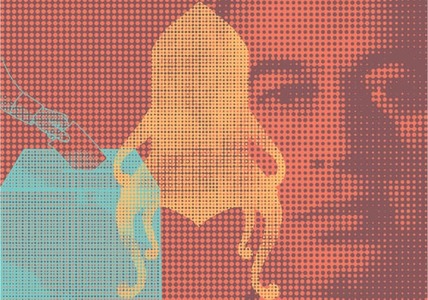FOR all that changes in Pakistan’s political life, much continues to conform to a choreographed script. Take, for example, the emergence of ‘popular’ demands for a presidential system of government whenever an establishment-sponsored regime is reaching the end of its shelf life. With some 18 months left before the next general election is due, the PTI government appears increasingly besieged, not to mention plagued by internal conflict. The once incessant rhetoric about it being on the ‘same page’ with the establishment is now a distant memory.
It is in this context that hashtags have reappeared in the digital space propagating the urgent need for Pakistan to adopt a presidential system of government. Bear in mind that both English and Urdu articles of a similar ilk have made their way onto editorial pages since 2020, and the Supreme Court even heard petitions on the matter last year, only to dismiss their sustainability.
While there is no evidence to suggest that all these developments are completely manipulated, it would be naïve to assume they are totally organic. Pakistan’s entire history is a cautionary tale about the concoction of manicured ‘public opinion’ so as to sustain our establishment-centric political-economic order.
With the hybrid regime experiment which was constructed around the purportedly infallible person of Prime Minister Imran Khan close to its end, another dispensation must now be imagined, projected and brought into being.
Young people must know the truth about our presidents.
After the last extended period when Pakistan was ruled by a president with extraordinary powers — Gen Pervez Musharraf — we have experienced three distinct political settlements. All of these regimes have featured mainstream politicians holding the formal reins of government, propped up by judicial, religious and media players, with the military establishment ensconced as the ultimate arbiter of power.
When this political settlement starts to splinter — which is inevitable because there is no coherent political and economic vision that holds the various constituents of the settlement together other than a no-holds-barred race for economic and political rents — a new arrangement is choreographed by the establishment.
Notwithstanding the significant efforts made to project the political settlement that was cobbled together around the PTI as a substantive departure from the ‘corrupt’ regimes fronted by the PML-N and PPP, the establishment-centric system has on the whole remained largely unchanged. The PTI’s relative fall from grace explains why hackneyed demands for a presidential system have resurfaced.
Editorial: Pakistan's power matrix continues to revolve around the establishment
Young people who comprise a majority of Pakistan’s population deserve to know the truth about all powerful presidents from our past.
Gen Ayub Khan presided over windfall gains for capitalist farmers and industrialists alike while exacerbating regional and class inequalities, alienating the then Bengali majority, and entrenching the state in the rentier logics of the Cold War. The man to whom he ceded the presidency, Gen Yahya Khan, held elections but refused to hand over power to the winning party and sent troops to East Pakistan which led to secession. While the first long — and disastrous —tryst with a presidential form of government ended with the adoption of the 1973 Constitution, the parliamentary regime which followed barely lasted four years. In September 1978, more than a year after deposing the elected government in a coup, Gen Zia became president, retaining the office until his death in 1988.
He became an almost unchallenged dictator by promulgating a series of constitutional amendments and conducting manipulated electoral exercises. And what did President Zia and his coterie of supporters achieve? Yet another era of aid-backed economic growth that exacerbated ethnic-national tensions whilst weaponising religion and making money and patronage the name of the electoral game.
Read: How Zia ruled — 1977-1988
After his death, the still powerful office of the president collaborated with other unelected state apparatuses to depose one after another admittedly compromised elected governments. This ended only when Gen Musharraf staged a coup to become the fourth all-powerful and uniformed president in Pakistan’s history. He presided over another aid-fuelled economic bonanza that placated upwardly mobile classes but exacerbated social fault lines, most notably in ethnic peripheries like Balochistan and with respect to religious militancy.
The PPP-led government after Musharraf repealed the Zia-era constitutional provisions and dislodged the quasi presidential form of government. Formal supremacy of parliament has not, however, equated to major gains for the working masses and ethnic peripheries or improved democratic health per se. But that does not mean that pretending that our experience with all-powerful presidents has been hunky-dory. If nothing else, we should be able to recognise that more of the same script will only deepen our predicament.
The writer teaches at Quaid-i-Azam University, Islamabad.
Published in Dawn, January 21st, 2022















































